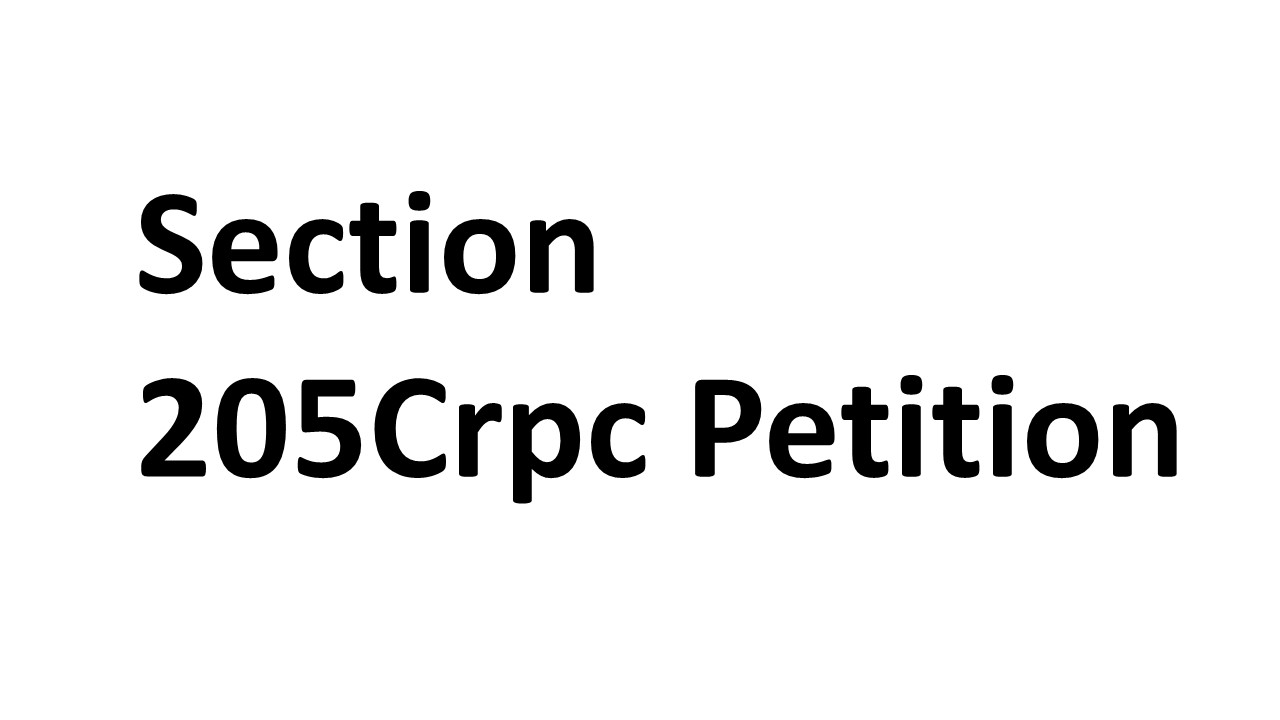
Understanding the Exemption of Appearance under Section 205 of the Criminal Procedure Code: A Legal Analysis
The procedural safeguards is the provision for the exemption of appearance under Section 205 of the Criminal Procedure Code (CrPC), which grants relief to accused individuals from the necessity of appearing before the court in certain circumstances.
Understanding the Exemption of Appearance under Section 205 of the Criminal Procedure Code: A Legal Analysis
In the realm of criminal law, procedural requirements play a pivotal role in safeguarding the rights of both the accused and the prosecution. Among these procedural safeguards is the provision for the exemption of appearance under Section 205 of the Criminal Procedure Code (CrPC), which grants relief to accused individuals from the necessity of appearing before the court in certain circumstances. This article delves into the nuances of Section 205, elucidating its scope, conditions, and implications within the criminal justice framework.
The Essence of Section 205:
Section 205 of the CrPC embodies the principle of procedural flexibility by affording accused persons the opportunity to seek exemption from personal appearance before the court. This provision acknowledges the practical realities and constraints faced by individuals entangled in criminal proceedings, while simultaneously ensuring their substantive rights are preserved.
Conditions for Seeking Exemption:
The invocation of Section 205 is contingent upon the fulfillment of certain conditions, which include:
1. Submission of a Written Application: Accused individuals must submit a written application to the court, detailing the grounds on which they seek exemption from personal appearance. This application serves as the formal conduit through which the request is communicated to the judiciary. Click for Phenix Bay Legal Readymade Format for Section 205 Crpc.
2. Justifiable Grounds: The grounds cited in the application must be justifiable and cogent, warranting the grant of exemption by the court. Common grounds include illness, physical incapacity, unavoidable travel constraints, or the absence of necessity for the accused's presence during preliminary stages of the trial.
3. Satisfaction of the Court:The ultimate decision regarding the grant of exemption rests with the discretion of the court, which evaluates the merits of the application and exercises judicial wisdom in determining its appropriateness.
Implications and Consequences:
The exemption of appearance under Section 205 carries significant implications for both the accused and the judicial process:
1. Accused's Rights: Section 205 safeguards the rights of the accused by mitigating undue hardship and inconvenience associated with mandatory court appearances. It enables accused individuals to prioritize their personal and professional obligations while navigating the intricacies of legal proceedings.
2. Judicial Efficiency: By permitting exemptions from personal appearance in appropriate cases, Section 205 contributes to the efficient conduct of judicial proceedings. It reduces unnecessary delays and logistical impediments, thereby expediting the dispensation of justice.
3. Conditional Obligations: Despite being exempted from personal appearance, accused individuals remain bound by other procedural obligations, such as legal representation through counsel, compliance with court orders, and participation in the trial process as and when required.
Precedents and Interpretations:
The application of Section 205 has been subject to judicial interpretation and clarification through landmark judgments:
1. Smt. Sarla Verma v. Delhi Administration (1998) 9 SCC 407: The Supreme Court underscored the discretionary authority vested in courts under Section 205, emphasizing the need for a balanced approach that respects the rights of the accused while upholding the integrity of the trial process.
2. Niranjan Singh v. Prabhakar Rajaram Kharote (1980) 2 SCC 559:This case elucidated that while courts possess the discretion to grant exemptions from personal appearance, such discretion must be exercised judiciously, guided by the principles of fairness and justice.
Conclusion:
In essence, Section 205 of the CrPC embodies the ethos of procedural fairness and flexibility within the criminal justice system. By providing a mechanism for the exemption of appearance, this provision harmonizes the interests of justice with the practical exigencies confronting accused individuals, thereby facilitating the smooth and equitable conduct of criminal proceedings. As custodians of justice, it behooves legal practitioners and judicial authorities to interpret and apply Section 205 judiciously, ensuring its efficacy as a cornerstone of procedural justice in the criminal domain.
Click to download Legal Format for Section 200 Crpc Petition
More >>
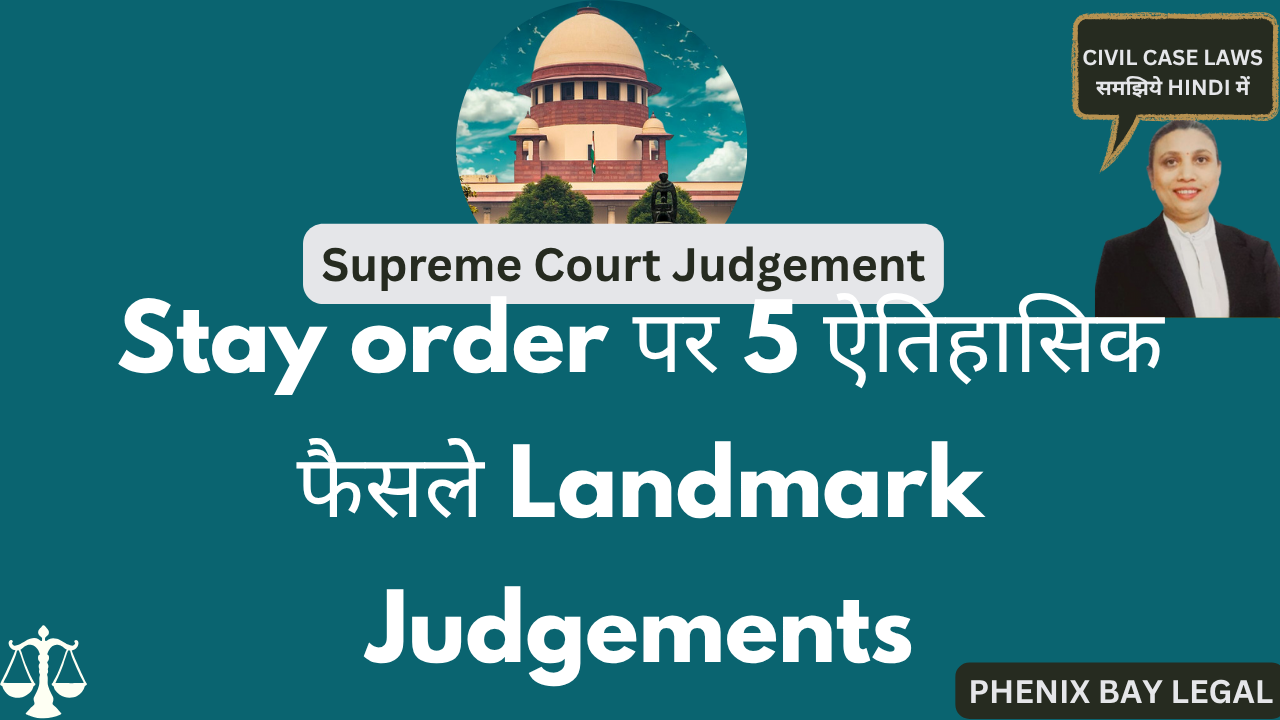
Landmark Judgement on Injunction
In civil, commercial, or even family disputes. But when is a simple injunction suit enough? When do you need to add a declaration of title? And how do courts balance urgency vs evidence in interim relief?
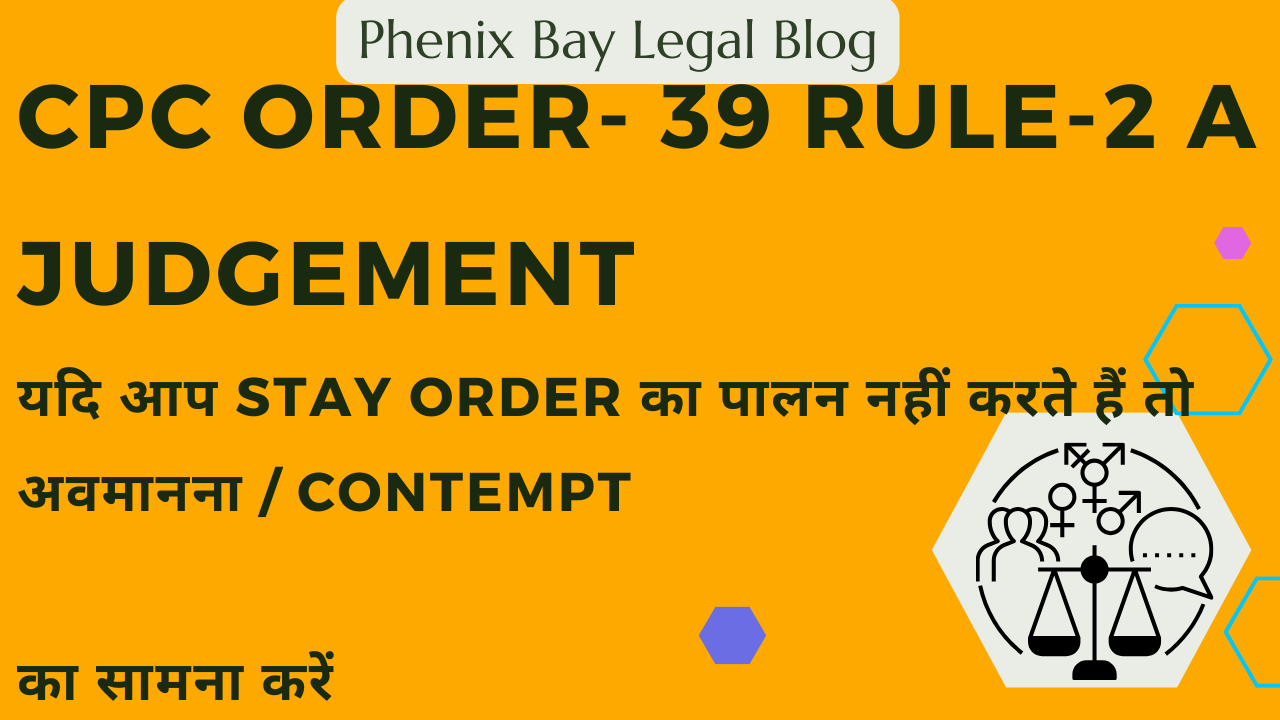
Case Analysis: Stay Order Violation and Contempt of Court by Supreme Court of India
Giving an undertaking to the court is equivalent to an order of injunction—any violation invites contempt proceedings.Injunction orders remain valid until formally vacated by a court—violation before vacation can lead to punishment.
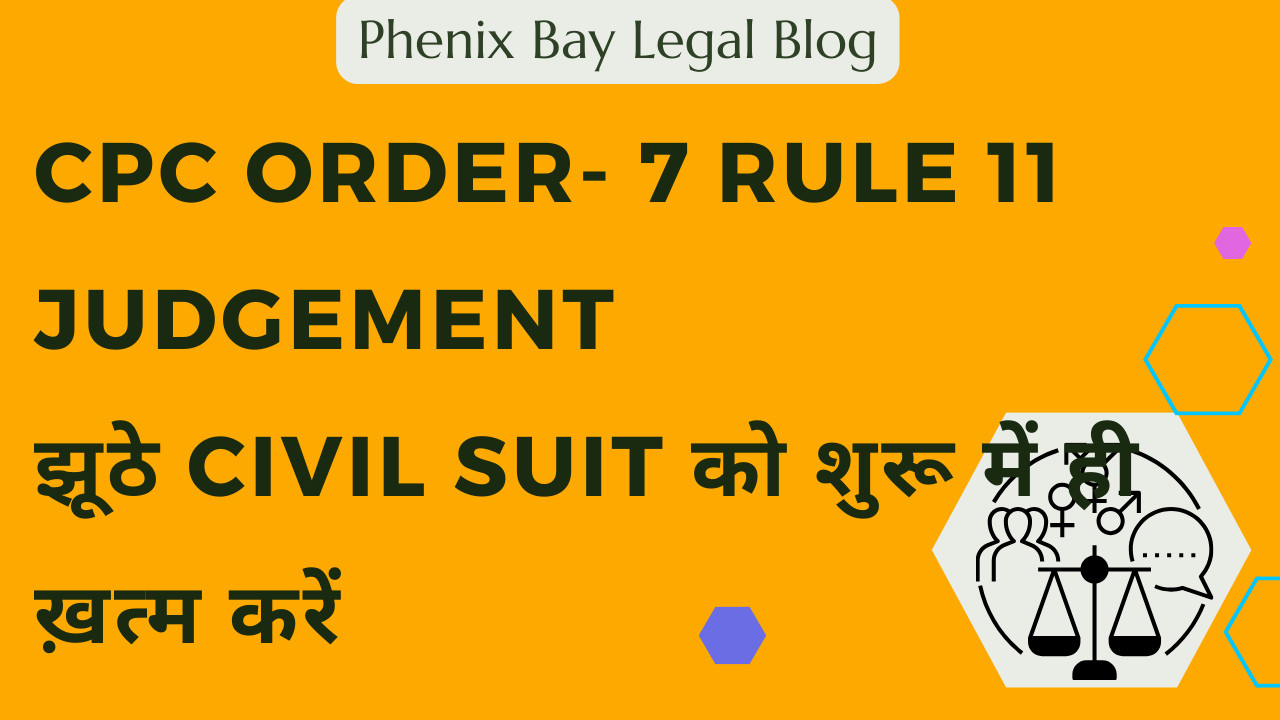
Order 7 Rule 11 of CPC Explanation in Land Mark Judgement
The Sopan Sukhdeo Sable judgment is a landmark ruling that reinforces Order 7 Rule 11 of CPC as a safeguard against frivolous and legally untenable claims. It highlights the importance of examining only the plaint’s contents to decide whether a suit should be dismissed at the threshold.
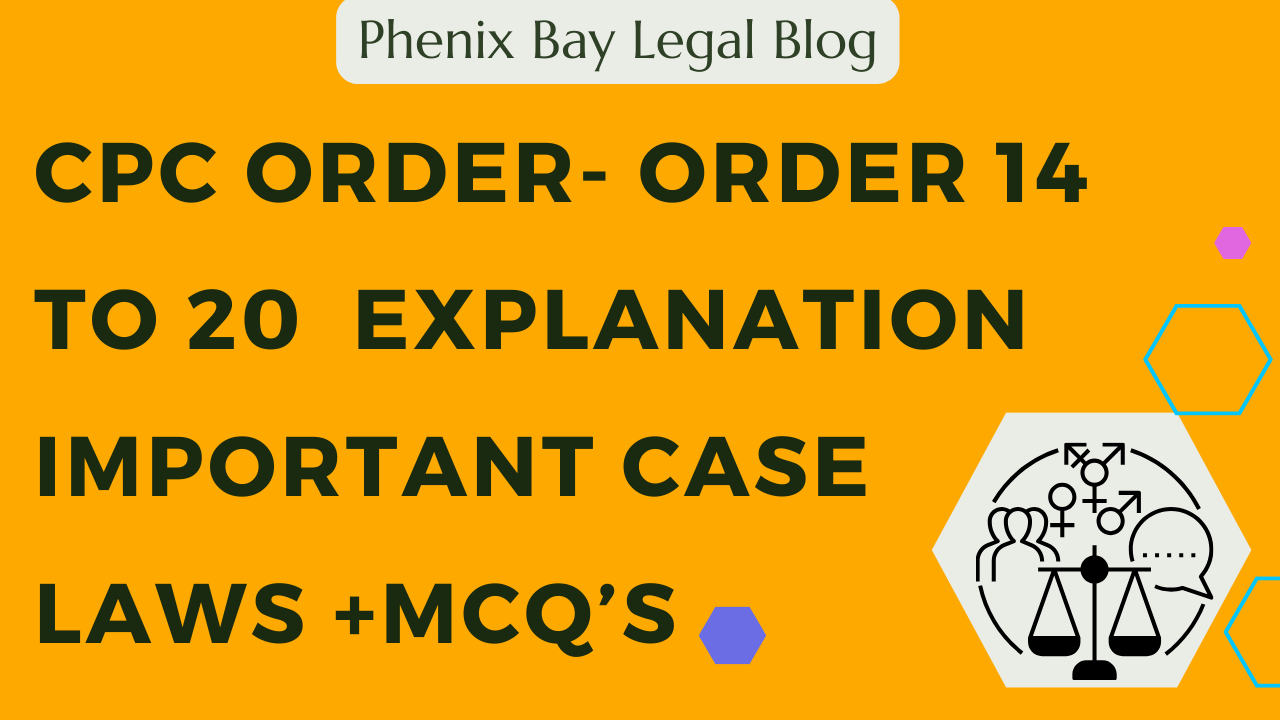
CPC Order- Order 14 to 20 Explanation IMPORTANT CASE LAWS +MCQ’S for Judiciary Exam Preparation
CPC Order- Order 14 to 20 Explanation IMPORTANT CASE LAWS +MCQ’S for Judiciary Exam Preparation
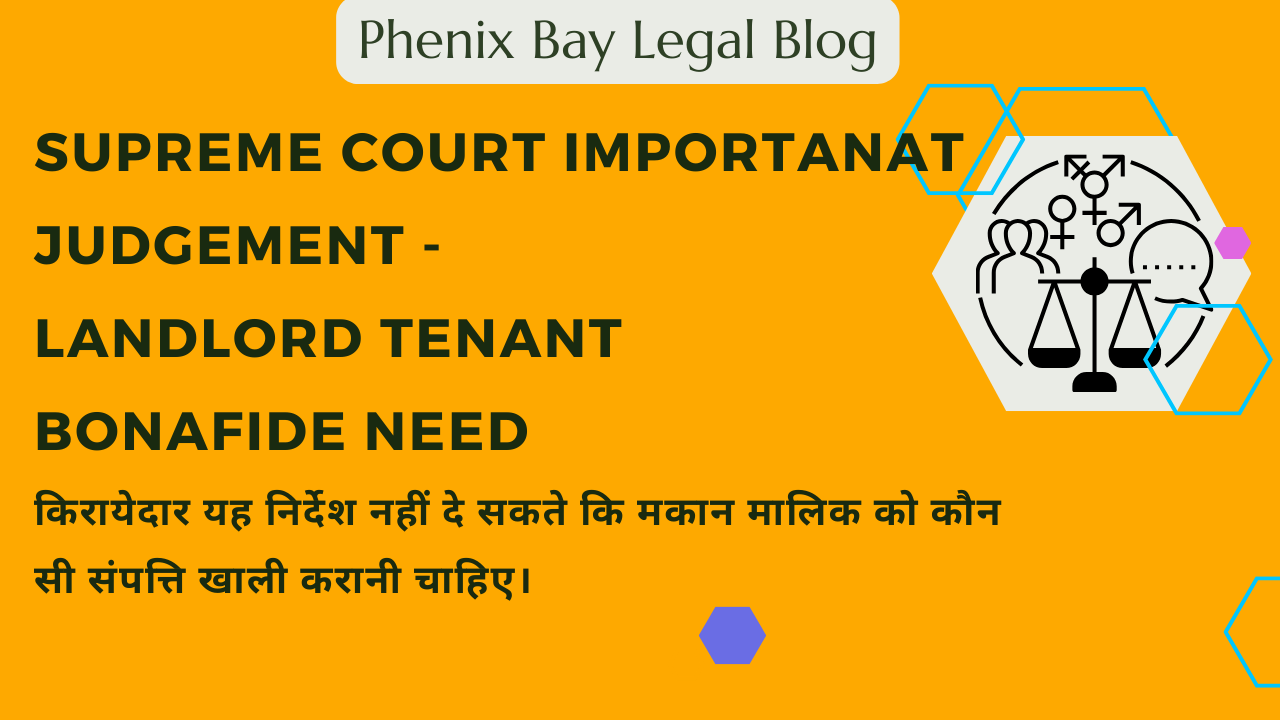
Supreme Court ImportanatJudgement - Landlord Tenant Bonafide need
This case involves a dispute over eviction of a tenant based on the bona fide need of the landlord. The Supreme Court ruled in favor of the landlord, reversing the High Court's decision. Below is a detailed breakdown of the judgment with relevant legal principles, precedents, and reasoning.
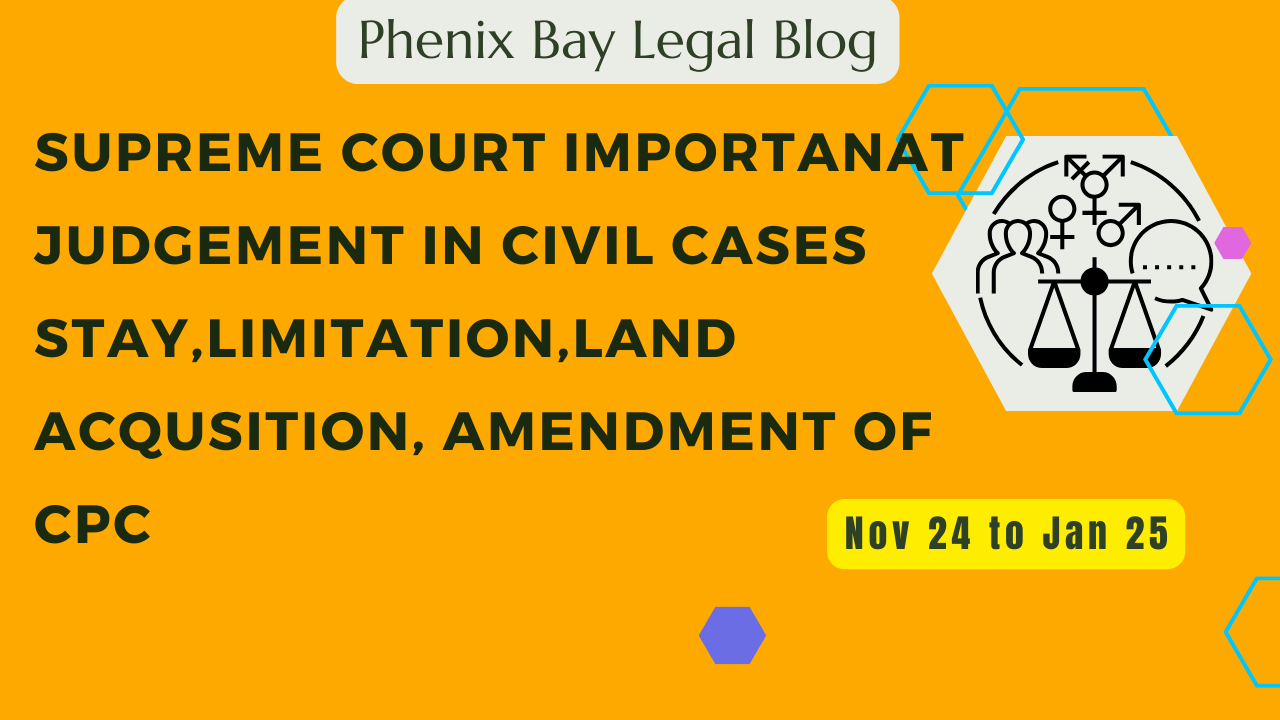
Important Civil Cases Judgement from Supreme Court - November 24 to January 2025
Supreme Court Importanat Judgement in Civil Cases related to Stay,Limitation,Land Acqusition, Amendment of Civil Procedure Code